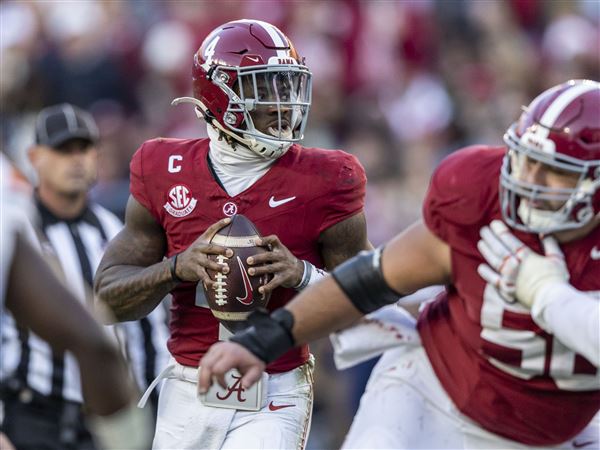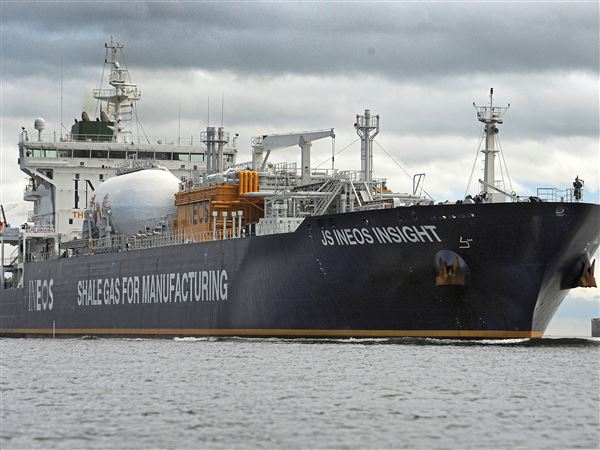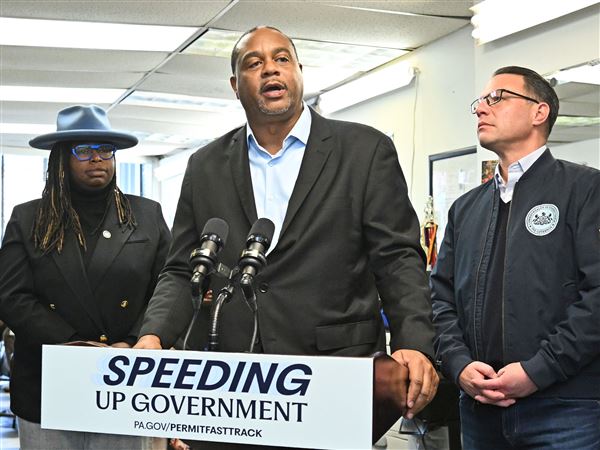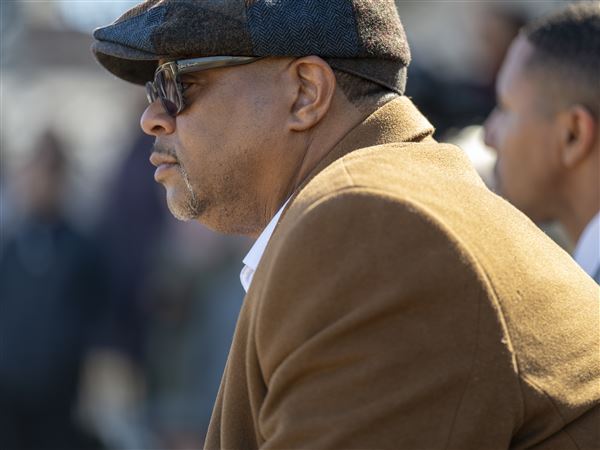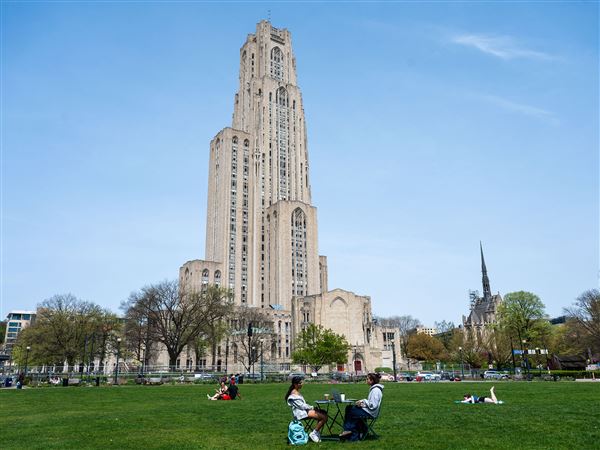A shimmering new stadium with spectacular views of Downtown has sparked interest in the Pittsburgh Riverhounds.
It also has forced the minor league soccer team and stadium owners into bankruptcy.
The partnerships that own the Pittsburgh Riverhounds and Highmark Stadium filed for Chapter 11 bankruptcy protection late Wednesday night, citing struggles with debt stemming from the stadium construction.
According to two Chapter 11 filings, the Riverhounds Event Center LP, which owns the stadium, owes $7.2 million in mortgage debt and $1.5 million in a secured loan from First National Bank, in addition to hundreds of thousands more to more than 50 creditors. The Riverhounds Acquisition Group, L.P., which owns the team, owes between $1 million and $10 million to between 50 and 99 creditors.
The upcoming season, which starts Saturday in Orlando, will not be affected, said team CEO Jason Kutney. The Riverhounds play their home opener April 12 and have assured players and fans that, from an operations standpoint, nothing will change.
Team management met with players and staff Thursday morning to inform them of the bankruptcy filing and to assure them that the business would run as normal.
"We're still fighting ... to make sure that Pittsburgh is a proper soccer city," Mr. Kutney said.
The team, which since its founding in 1999 has played in the United Soccer Leagues, still has a goal of one day joining Major League Soccer, the United States' highest level of professional soccer. The bankruptcy proceedings could help the team emerge in an even better position to woo the MLS, Mr. Kutney said.
"We have to restructure this debt, otherwise it would not be feasible," he said. "We were doing what we could to get by. You can't possibly just get by and make it to the MLS."
Major League Soccer representatives did not return messages seeking comment.
Riverhounds majority owner Terrance "Tuffy" Shallenberger will finance the team and the stadium during the bankruptcy period, the team announced in a statement. Mr. Shallenberger, who owns Connellsville-based Shallenberger Construction, bought a majority stake in the partnerships last summer.
Mr. Kutney said team officials started talking about cash flow solutions about six months ago and worked through a variety of options. Only recently, he said, did the team determine Chapter 11 reorganization was its best option.
"There's some concern any time the necessity is to go into Chapter 11 proceedings," said USL president Tim Holt. "But we still think the long-term prospects for the Riverhounds and USL Pro in Pittsburgh are exceptionally bright."
Before building the stadium, which was initially projected to cost $10.2 million, in Station Square, the Riverhounds played their home games at area high school stadiums. After nearly folding in 2006, the team started exploring stadium options in 2007. It had negotiated a public-private stadium venture with Allegheny County in 2007 for a soccer stadium on Neville Island, but those plans fell through.
In 2012, the team got aggressive with its stadium plan, leasing land at Station Square and raising $5.1 million in private equity for a new stadium.
The team eventually broke ground on Highmark Stadium, a 3,500-seat venue that opened in April 2013 with an artificial turf and sweeping views of the Monongahela River and the Downtown skyline.
"The Riverhounds could have continued along their way for as long as possible at high school venues, trying to develop a professional soccer stadium in Pittsburgh, but it would have never worked," said Mr. Kutney, who helped buy the team in 2006 after previous owners wanted to fold the franchise.
On the field, the Riverhounds have been successful. The team has qualified for the postseason in the 14-team league in three of the past four seasons.
Tickets range between $10 and $20. For adults, soccer is still somewhat of a niche spectator sport. Among youth, its among the most popular activities, and attendance reflects the youth interest.
The team is just one of four USL Pro franchises to own its stadium, though a few other teams are in the process of building their own venues. The league encourages its teams to own their stadiums.
The Riverhounds stadium was built using primarily private money, though the team received a $2.2 million New Markets tax credit and a $500,000 loan from the city's Urban Redevelopment Authority.
While the stadium has increased attendance drastically -- the team averaged more than 3,400 fans in 14 home games last season, up from 1,000 the previous year -- the revenue growth could not make up for increasing debt obligations.
Construction delays, which Mr. Kutney were normal for a project that size, escalated stadium costs and forced team officials to pay even more to meet deadlines.
Through Chapter 11, the team hopes to restructure the debt, Mr. Kutney said.
Through the proceedings, Mr. Shallenberger will have the ability to negotiate financing and restructure loans, if the team's and stadium's creditors approve.
The stadium has been used for events other than soccer, including high school games and a few small festivals, but it has been unable to lure concerts and other entertainment acts. Mr. Kutney hopes that will change when stadium staff can focus less on debt management and more on business growth. But the venue will face stiff competition from Stage AE, a concert venue that opened on the North Shore in 2010.
The Riverhounds are not the first USL team to run into problems with stadium financing. The Lehigh Valley Steam folded after just one year in operation when project delays left them without a stadium after their 1999 expansion year. In 2000, the ownership group filed for bankruptcy.
Mr. Holt said this situation is "very, very" different because of the growing popularity of the Riverhounds brand and the long-term success of the franchise.
"Growth is not always completely linear," he said. "There are always some blips, and I think this is one of those blips."
First Published: March 27, 2014, 1:06 p.m.
Updated: March 28, 2014, 2:46 a.m.
